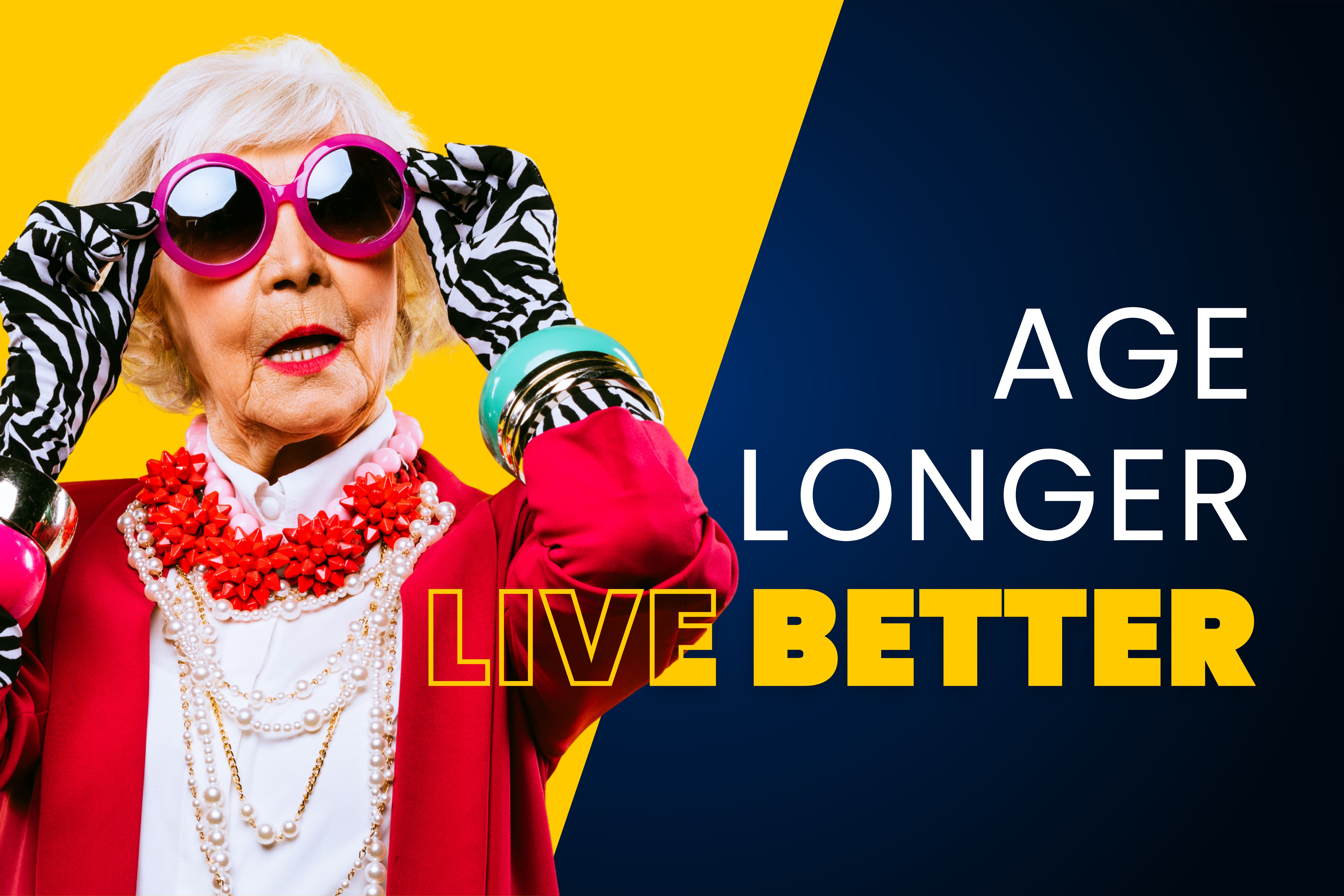Imagine that you’re a billionaire.
Now imagine that as a billionaire, you want to live as well as possible, for as long as possible.
You may be imagining yourself surrounded by a Bryan Johnson-esque playground of testing machinery, served by a personal chef who magically produces healthful and delicious meals, and supported by a team of health and wellness professionals strategizing constantly on how to optimize your health.
This picture comes close to what it might be like not to have to worry about the cost of longevity medicine. But to think that cost is only monetary doesn’t fully describe the whole picture.
Cost # 1: Cash
Money is simply the most common denominator we use to define value in our modern society. It is a useful metric that demonstrates how drastically we have failed in the U.S. to produce a valuable healthcare system (evidenced by a high cost, low healthspan society).

We also obsess over money as individuals, somehow thinking it is the key to unlocking health, happiness, and glory. To some extent this is true. It is difficult to get by without any money. However, even great gobs of money, such as the amount the U.S. spends on healthcare ($4.5T a year), sometimes isn’t enough to buy health.
The reason is that money is like firepower. You can use it to tear down your obstacles or, if you aim incorrectly, you can cause a great deal of havoc to yourself.
Indeed, there are reasons why some of the wealthiest people in the world still struggle with their health. It’s because there’s more than just money in the art of living healthfully.
There are also ways to achieve great health and longevity without a sizable bank account. At risk of sounding trite, there are centenarians all over the Blue Zones of the world, living active lives despite having very little money whatsoever.
Breaking Free From Insurance-Driven Healthcare
Our current U.S. healthcare system is gated by, and thus driven by, third-party payers. These are insurance companies who tell you your GLP-1 agonist will only be covered if you’re already 200 lbs and have diabetes. Or those who force your doctors into a tooth and nail fight of prior authorizations and supporting documentation to get the medication best for your health. They’re also the ones that put a halfhearted effort into rewarding healthy behaviors, paying out $5 if you achieve your monthly step count goal (but only if you go through two portals and connect the one type of bank account they’ll accept).
If you haven’t seen this brilliant South Park episode, you need to watch it now. It is required viewing for longevity health.😉
If you didn’t need to rely on insurance, you could pay for as much physician attention as you need - trust me, your doctors would be much happier as well. You would eliminate wait times and back and forths to get to the right specialist or medication.
With all these problems, you might wonder why insurance even exists, and the answer to that is very complicated. One reason is the need for a safety net for those in dire straits, requiring healthcare measures the hospitals would otherwise not get paid for. Pinning the problem on insurance is also only one piece of the puzzle - there are other players responsible for rising costs, from pharmaceutical companies to pharmacy benefit managers to hospital systems. Regardless, the unhappy truth is we’re stuck with this system until we break so irreparably that we need to disrupt it.
Breaking free from insurance-driven healthcare is the main reason why money is so powerful for health improvement and longevity in the U.S. For the majority of us fighting modern-day health insults that lead to chronic disease, the truth is you need either a big spending account or excellent self-advocacy skills to get the healthcare you need for longevity.
Cost # 2: Time
Time and effort I’ll combine into the second category of cost for health and longevity. I know some of you readers will argue that people with more money have more time and freedom to dedicate toward their health. And I don’t disagree; but it is a subtle nuance to piece apart.
It costs time to dedicate activities and even brain space toward healthy goals. It costs attention and focus to prioritize one’s own health. Busy parents, for example, often give up their own wellbeing for the sake of their beloved babes (ironically plaguing them later with their own caregiving). Busy employees burn out and lose sleep, becoming more susceptible to illnesses from COVID to diabetes (ironically costing their employers more in healthcare benefits).
The final nail in the coffin is how we spend what little free time we have. We live in a world that eats up all our spare time with screens, large and small, leading to social isolation and a sedentary lifestyle that extends from the workplace desk to the couch at home.
Recycling Time for Health
I have countless patients who are, for the first time in their lives, learning how their health insurance plan works because they’re so motivated to get their GLP-1 agonists. This is fantastic!
Now if you had the time, I encourage every person to advocate for their own health. Learn about the root causes of your symptoms rather than simply asking for a bandaid solution. Decide what medications are actually necessary, versus those whose side effects might be contributing to worsening health issues. Finally, call your doctor, pharmacy, and insurance plan. Understand enough to get what you need (or to get really angry that you can’t get what you need and maybe drive a revolution).
For a little time, you can also earn yourself health through lifestyle. Sure, you could get a hefty workout done and build muscle more easily with optimized hormone treatments and supplementation. But you could also do something similar with bodyweight exercises and “everyday activity” workouts, like carrying 10-15 lb grocery bags while walking home.
.png)
The bottom line is, we can’t avoid the fact that time is a huge cost and often the primary barrier for people hoping to achieve great health.
Cost #3: Risk
Finally, there’s risk. This is an interesting one, because I would argue that we’re already all taking a great risk, trusting the current day healthcare system with our health. After all, we aren’t doing too well in terms of life expectancy (see above and below).
.png)
However, let’s name the risk of going against the norm. When you aim for wellness and longevity, not just treatment of bad symptoms or late-stage disease, you are being revolutionary. I recall times when I worked in a more conventional practice when relatively healthy people without medical diagnoses would come in for their so-called annual visit, and we had absolutely nothing to talk about.
Now that I work with longevity as a goal, I know there’s no such thing as too early or too proactive to get a person on the right track. Sometimes, my patients risk being labeled as health fanatics. All the time, there are measured risks we must take to achieve the reward of healthspan.
Leveraging Knowledge and Trust
Is it worth spending twice as much for grapes that are organic? How about avocados? Is the out-of-pocket cost for testosterone replacement therapy worth its benefit in energy and metabolism? How about the risk of it dampening your native testosterone synthesis and future fertility?
Evaluating risk versus benefit is the most complicated cost of longevity medicine. Unfortunately, many interventions used to promote healthspan and lifespan are not well-studied in the scientific world. This is slowly changing, but the truth is we often need to rely on less than perfect data (or data from animal models).
This is where it takes incredible personal awareness and attention to understand what is worth the risk, and what even the degree of risk exists for a specific person and intervention. On a side note, this is the most human aspect of medicine that cannot be digitized away, although AI and other knowledge technologies can support a physician and their patients with decision making.
Happiness - An Additional Cost?
“I would rather be happy and die earlier.”
This is a common rebuttal when I pose a healthy change to a patient, family member, or friend. They would rather not give up their wine and chocolate, or late nights up binging their favorite show.
But the reason why this article is about the three types of cost and not four is because I think health versus happiness is a false dichotomy.
Sure, it might be that you have to forgo Lucky Charms for breakfast and choose a seltzer with lime over wine and cheese, but at the end of the day, the occasional treat will barely make a dent on your longevity.
It’s about making the healthier choice most of the time. For example, my partner and I used to get Uber Eats 3-4x a week (you would not believe what incredible dining options you can get delivered to your home in NYC - even Michelin-starred meals in a box!). But over time, we diverted our delivery fees to produce boxes and rewarded ourselves by shopping at high-end grocery stores for quality meat. We discovered that with a few tricks (we use a bluetooth thermometer to make the perfect venison steaks at home), we actually eat better quality food at home that doubles as being fantastically delicious. Really!
%2520(1).png)
.png)
But once in a (long) while, we’ll still go out and get an amazing 7th Street Double Cheeseburger or world-class cocktail. You’d be amazed how much more special those moments are when you actually make them special.
Health = Happiness
Not to mention, when you treat your body well, you will feel good, even awesome! So many of my successful weight management patients, for example, don’t remotely miss their desserts and sodas. The unhealthy snacks they used to reach for when they were feeling sad, bored, or tired have become unnecessary; simply because they’ve become less sad, bored, and tired.
At the risk of sounding a bit extreme, I deeply believe that your body is equivalent to your experience of life and the world. If you care for it, you will have a much better time living. In other words, you’ll be much happier.
Is It Worth It? A Personal Calculus
There is no getting around it - there is a cost to prioritizing longevity health. It will take money, time, and a measured degree of risk. It may cost you friends and even certain aspects of your identity (I sadly don’t eat much of my native Taiwanese food because of this). At the end of the day, it’s a careful weighing of each cost to determine what a longer, healthier life is worth to you.
And no one can answer that but you.
Until next time - Cheers to your health!
Hillary Lin, MD






.jpg)





